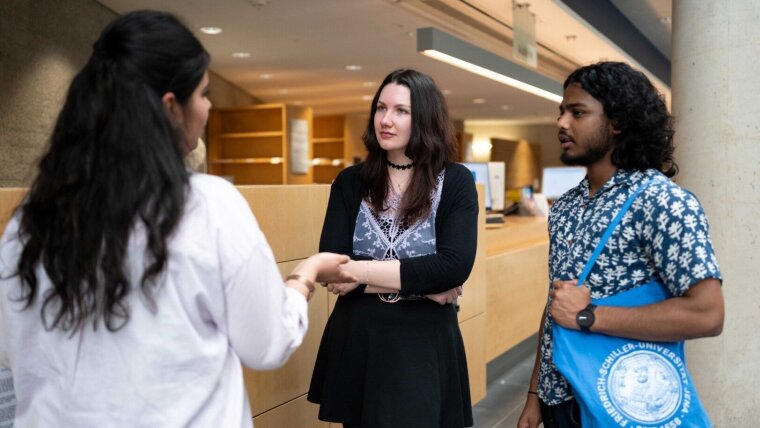
- International Affairs
- Research
Published: | By: Stephan Laudien
The figures for the predicted labour shortage in Thuringia are dramatic: 386,000 workers are expected to retire by 2035. According to the 4th Skilled Labour Study by the Thuringian Ministry of Labour and Social Affairs, one in two of these vacancies in the state will remain unfilled, as Thuringia already has the highest employment rate in Germany alongside Saxony. The potential labour force available in the state is therefore exhausted.
That's why the focus is on international students who are to be recruited for the labour market in Thuringia after their studies. To explore this potential, the Friedrich Schiller University Jena has now launched the ARAPiS project: "Analyse der Rolle und des Arbeitsmarktpotenzials internationaler Studierender der Universität Jena im Kontext Thüringens" (Analysis of the role and labour market potential of international students at the University of Jena in the context of Thuringia). The Thuringian Ministry for Economic Affairs, Science and Digital Society is funding ARAPiS with 200,000 euros.
Integration appears promising and less of a hurdle
"The integration of international students into the local labour market seems promising and less of a hurdle because these students have already decided to study in Thuringia," says Dr Claudia Hillinger, Head of the International Office at the University of Jena. This means that these young people already live in Thuringia and have acquired language skills. The aim now is to analyse how the graduates can be recruited for employment in Thuringia.
One sub-project will adopt the perspective of companies in the Free State, while a second sub-project will focus on the perspective of international students. According to Dr Hillinger, ARAPiS builds on the results of the previous projects "Weltoffen miteinander arbeiten in Thüringen" (WOM, Working together open-mindedly in Thuringia) and "Hochqualifiziert. International. Thüringen." (HiTh, Highly skilled. International. Thuringia). The emphasis in WOM and HiTh was on creating a regional culture of welcome for skilled workers from abroad and making it easier for these skilled workers to enter the Thuringian labour market. ARAPiS, on the other hand, focuses on international students who are already in Thuringia.
The project is being implemented by the International Office and the KomRex (Centre for Right-Wing Extremism, Civic Education and Social Integration) at Friedrich Schiller University Jena with the participation of Prof. Dr Sebastian Henn (Economic Geography) and Prof. Dr Tobias Rothmund (Communication and Media Use). At the end of the two-year project period, recommendations for action are to be made available in a summarized form to the recruitment management of companies, international students and the institutions of higher education in Thuringia.
